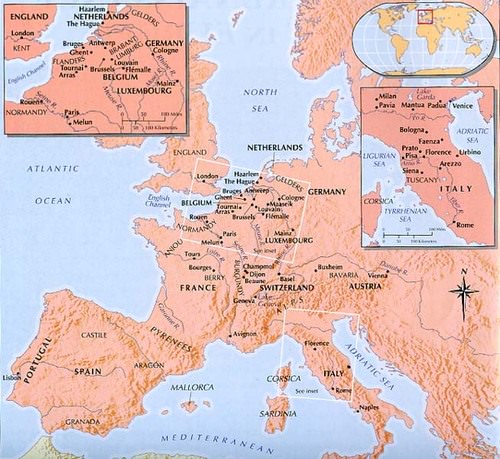The Renaissance thinkers had diverse interests. Among them, they studied the human condition, especially the life of the classical Greek and Roman men. They also studied Greek and Roman philosophy and literature, and were fascinated by music. If you want to learn more about their works, read on. Here are some of their most famous works. They studied music, the human experience, and ancient Greek and Roman men.
Music
The Northern European Renaissance began around 1430. Artists in the northern part of the continent began to copy the techniques used by their Italian counterparts, using naturalistic observation and linear perspective. These artists sought to sell their works to merchants as well as to wealthy citizens. However, this change in perspective also brought about the Protestant Reformation, which drastically altered the face of Northern Renaissance art. Artistic styles shifted from the classical and idealized to the more realistic and realism-based.
During the northern Renaissance, the humanist philosophy became increasingly influential. It valued classical texts and the importance of individual man in the universe. Humanism became the dominant philosophy of Northern Europe, and new printing technologies made it possible for their ideas to be widely distributed. Leading thinkers, including Dutch Desiderius Erasmus and German Conrad Celtis, were the result of their studies. Their work impacted the entire world, and influenced many later generations.
The court masque
Anne of Green Gables, one of the most popular novels of the northern Renaissance, claimed authority over her own body by singing and dancing. Her portrayal of the ephemeral nature of the court masque reflects a sense of authority over her own body. In the same vein, court sermons and court masques were both forms of entertainment and social commentary. During the reign of James I, these forms of entertainment and social commentary dominated northern Renaissance society.
Ancient Greek and Roman philosophies
During the northern Renaissance, many northern European thinkers focused their studies on ancient Greek and Roman philosophies. This renewed interest in ancient literature and philosophy was largely spurred by the humanist movement. Although medieval universities tended to favor Aristotle and his followers, humanists emphasized the importance of other ancient philosophers. The most important movement of the later fifteenth century was the revival of Christian Platonism, and one of its most prominent protagonists was the Florentine humanist, Marsilio Ficino. In the exhibition, Ficino’s letters are displayed in a presentation copy.
The Renaissance began as an attempt to replicate classical Greek and Roman culture. Early Renaissance thinkers were deeply inspired by Greek and Roman philosophies, such as Epicurus. The Medici family of Florence was the ultimate example of civic humanism. They invested heavily in the city, a practice closely linked to their prestige and commitment to their city. Civic humanism is comparable to the sentiment of modern-day patriotism.
Humanists
The Italian humanists shaped the northern Renaissance in several ways. First, they influenced the development of art and culture by providing social reform. In particular, they focused on the rebirth of moral and ecclesiastical institutions. Secondly, they encouraged the revival of education. In the north, this meant reviving classical and early Christian writings. And lastly, humanists in the northern Renaissance encouraged the revival of a more personal religious identity.
The French, on the other hand, encouraged humanistic thinking by establishing the Collge de France, which later became known as the University of Paris. Its founder, Guillaume Bud, was an admirer of Plato and translated all of his works into Latin. Several members of the royal family also pursued this new school. Their influence is still felt today. While the Italians focused on rhetoric, the French were primarily interested in the development of morality, religion, and politics.

